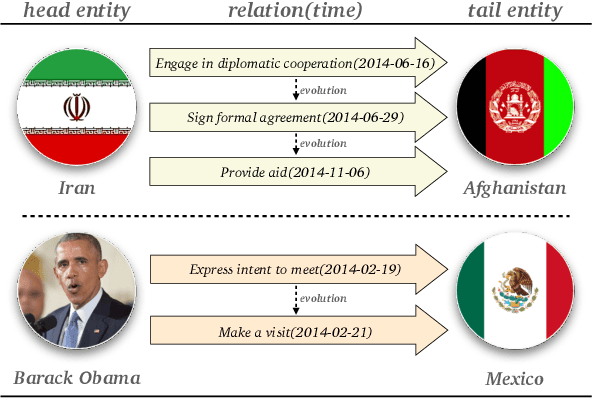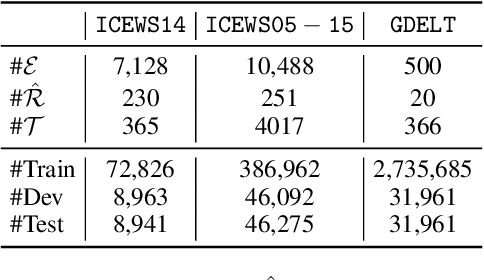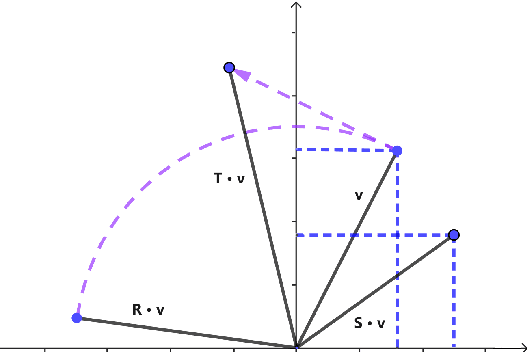Rui Ying
Simple but Effective Compound Geometric Operations for Temporal Knowledge Graph Completion
Aug 13, 2024



Abstract:Temporal knowledge graph completion aims to infer the missing facts in temporal knowledge graphs. Current approaches usually embed factual knowledge into continuous vector space and apply geometric operations to learn potential patterns in temporal knowledge graphs. However, these methods only adopt a single operation, which may have limitations in capturing the complex temporal dynamics present in temporal knowledge graphs. Therefore, we propose a simple but effective method, i.e. TCompoundE, which is specially designed with two geometric operations, including time-specific and relation-specific operations. We provide mathematical proofs to demonstrate the ability of TCompoundE to encode various relation patterns. Experimental results show that our proposed model significantly outperforms existing temporal knowledge graph embedding models. Our code is available at https://github.com/nk-ruiying/TCompoundE.
Reinforcement Learning Tutor Better Supported Lower Performers in a Math Task
Apr 13, 2023



Abstract:Resource limitations make it hard to provide all students with one of the most effective educational interventions: personalized instruction. Reinforcement learning could be a key tool to reduce the development cost and improve the effectiveness of intelligent tutoring software that aims to provide the right support, at the right time, to a student. Here we illustrate that deep reinforcement learning can be used to provide adaptive pedagogical support to students learning about the concept of volume in a narrative storyline software. Using explainable artificial intelligence tools, we extracted interpretable insights about the pedagogical policy learned and demonstrated that the resulting policy had similar performance in a different student population. Most importantly, in both studies, the reinforcement-learning narrative system had the largest benefit for those students with the lowest initial pretest scores, suggesting the opportunity for AI to adapt and provide support for those most in need.
 Add to Chrome
Add to Chrome Add to Firefox
Add to Firefox Add to Edge
Add to Edge